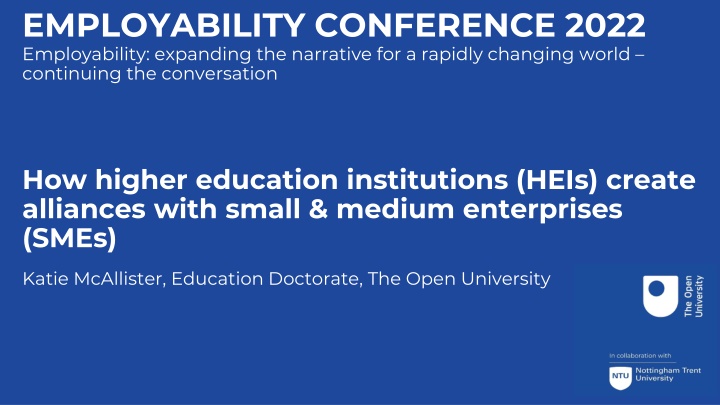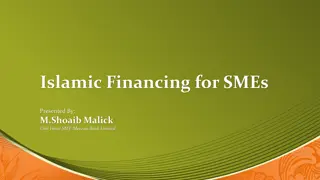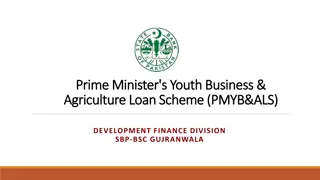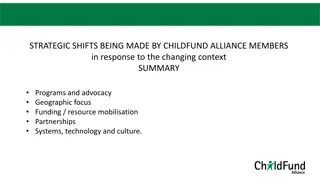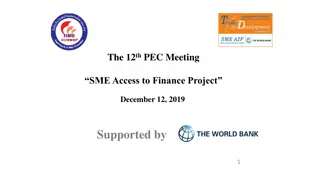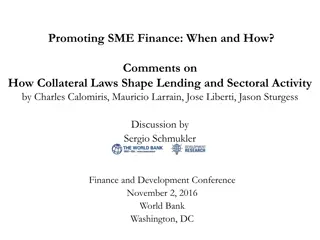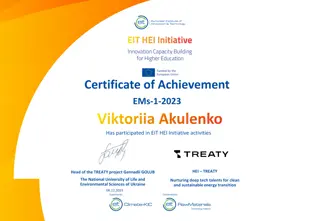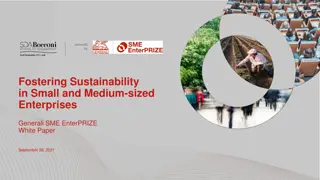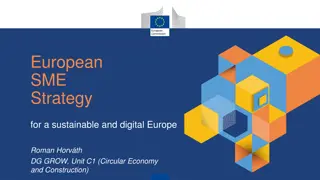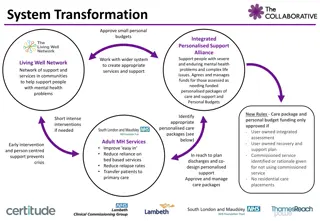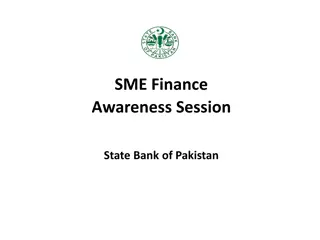HEI-SME Alliance Creation: Building Sustainable Partnerships
Small and Medium Enterprises (SMEs) play a significant role in the UK business landscape, comprising 98% of businesses. This study aims to develop a conceptual framework for Higher Education Institutions (HEIs) to create alliances with SMEs, focusing on supporting graduates' outcomes, employability opportunities, and local economies. By examining the research purpose, methodology, and theoretical framework, the study seeks to provide valuable insights into how HEIs can enhance their partnerships with SMEs for mutual benefit and growth.
Download Presentation

Please find below an Image/Link to download the presentation.
The content on the website is provided AS IS for your information and personal use only. It may not be sold, licensed, or shared on other websites without obtaining consent from the author.If you encounter any issues during the download, it is possible that the publisher has removed the file from their server.
You are allowed to download the files provided on this website for personal or commercial use, subject to the condition that they are used lawfully. All files are the property of their respective owners.
The content on the website is provided AS IS for your information and personal use only. It may not be sold, licensed, or shared on other websites without obtaining consent from the author.
E N D
Presentation Transcript
EMPLOYABILITY CONFERENCE 2022 Employability: expanding the narrative for a rapidly changing world continuing the conversation How higher education institutions (HEIs) create alliances with small & medium enterprises (SMEs) Katie McAllister, Education Doctorate, The Open University
How higher education institutions (HEIs) create alliances with small & medium enterprises (SMEs) Katie McAllister Open University, Education Doctorate, 3rd Year
Introduction Small and Medium Enterprises (SMEs) form 98% of the UK businesses HEIs - support graduates outcomes, employability opportunities, entrepreneurship and their local economy Little literature relating alliance creation between HEIs and SMEs Requires a sustainable strategy and infrastructure A theoretical framework to provide a more secure base for HEIs
Research aims Study purpose To develop an effective conceptual framework of HEI-SME alliance creation for HEIs that provides theoretical and empirical basis for the future development Provide an indication of the areas HEIs address when considering HEI-SME alliance creation Make suggestions about how the HEI can further support its SME alliance creation Main research question (RQ) What conclusions can be drawn to develop a conceptual framework regarding how HEIs create alliances with SMEs?
Methodology Ontology: Interpretivism Epistemology: Subjectivism Methodology: Case study (Yin, 2003) Participants: The 16 Office of Students Challenge Fund recipients across England; local networks Methods: Document review of HEI documents in the public domain including websites Questionnaires with HEI staff within employer engagement roles Semi-structured interviews with HEI staff within employer engagement roles Questionnaires with SMEs within the region Ethics: approval granted Pilot: Two regional further education (FE) colleges and regional organisation representative for businesses
Theoretical framework Strategic Evaluation Offer The HEI-SME phenomena is complex, linking multiple disciplines (Mishler, 1990) Elements identified, refined and themed to provide insight (Jabareen, 2009). The literature review indicated 9 thematic elements linked to the HEI-SME alliance creation. The theoretical conceptual framework incorporates strategic and operational considerations Delivery Operation HEI-SME alliance creation Networks & 3rd parties Staffing SMEs choice Relation- ships Figure 1: Theoretical conceptual framework of HEI-SME alliance creation Author: Katie McAllister. Not to be copied or shared without author s permission
Pilot results Regional business representative SME lack of awareness HEIs are not part of SME networks HEIs are not generally customers of/suppliers to SMEs SMEs lack local alumni compared to FE Lack of value SMEs see limited value in engaging with HEIs beyond R&D Non-engagement HEIs are not a high consideration for SMEs when looking at training SMEs experience a number of barriers to engaging with HEIs
Pilot recommendations Strategic Evaluation Offer Checklist & guide for HEIs Government policy makers to address the marginalisation of SMEs relating to apprenticeship criteria LEPs to address the fundamentally differences between the value system and success criteria of universities and SMEs Government to consider substantial investment Delivery Operation HEI-SME alliance creation Networks & 3rd parties Staffing SMEs choice Relation- ships Theoretical conceptual framework of HEI-SME alliance creation Author: Katie McAllister. Not to be copied or shared without author s permission
References Jabareen, Y. (2009) Building a conceptual framework: Philosophy, definitions, and procedure , International Journal of Qualitative Methods, 8(4), pp. 49 62 Mishler, E. (1990) Validation in inquiry-guided research: The role of exemplars in narrative studies , Harvard Educational Review. Harvard Education Publishing Group, 60(4), pp. 415 443. doi: 10.17763/haer.60.4.n4405243p6635752 Yin, R. K. (2003) Case study research: Design and methods. 3rd Editio. Thousand Oaks, California: SAGE Publications
ANY QUESTIONS? How higher education institutions (HEIs) create alliances with small & medium enterprises (SMEs) Katie McAllister Katie.mcallister@peterborough.ac.uk
